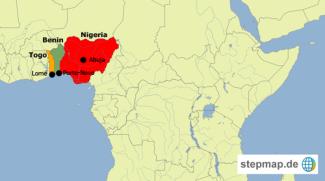Economy
Fuel smuggling

According to a report published by the Africa Economic Development Institute (AEDI), about 55 million barrels of oil per year are lost in Nigeria due to theft and smuggling. Some of it is brought to Togo via Benin on well-organised, illegal routes.
It is dangerous to transport the fuel. In the case of an accident, the entire vehicle is likely to blow up. In Lomé, the capital of Togo, it is common to see young people drive cars at breakneck speeds. The back seats have been removed and are packed with cans of smuggled petrol. The drivers are desperate to earn some money. Most do not have a formal education, and many do not have a driving license. Some drive under the influence of drugs.
The young drivers supply petrol to the dealers’ network across the agglomeration. “Of course we are risking our lives, because we can be victims of a fatal accident,” says 17-year-old orphan Koffi Djintri. He points out, however, that he needs to make money.
Youngsters like him are the most vulnerable link of an illegal business that generates enormous income for the top members. They are at risk of accidents, and they are the most likely to be caught by the police. Law enforcement tends to be week, and one may actually sometimes even see police officers buying oil from sellers who are quite obviously breaking the law.
More than half of Togo’s people live in extreme poverty. There are very few jobs in the formal sector, so some young people see no alternative to working for the illegal oil trade.
Economist Yaovi Mensah comments that “even though this business is forbidden in Togo, the income generated by smuggling has a direct impact on the livelihood of people”. It is for this reason, he believes, that officials “fail to combat it firmly”. Mensah says that there are no reliable data regarding the black market, since it is entirely informal.
In 2015, the government estimated that state-owned oil companies’ revenues were reduced by 2 billion CFA (the equivalent of over $ 3 million) per month because of the illegal fuel business. A police operation was started. It managed to confiscate half a million litres. In 2016, however, less action was taken. According to Moïse Touh, a quality control agent at the Ministry of Commerce, the government is “designing strategies to provide uninterrupted and sufficient high-quality oil across the whole country” to fill the existing gaps.
Ibrahim Oredola Falola is a journalist and lives in Lomé, Togo.
ibfall2007@yahoo.co.uk






